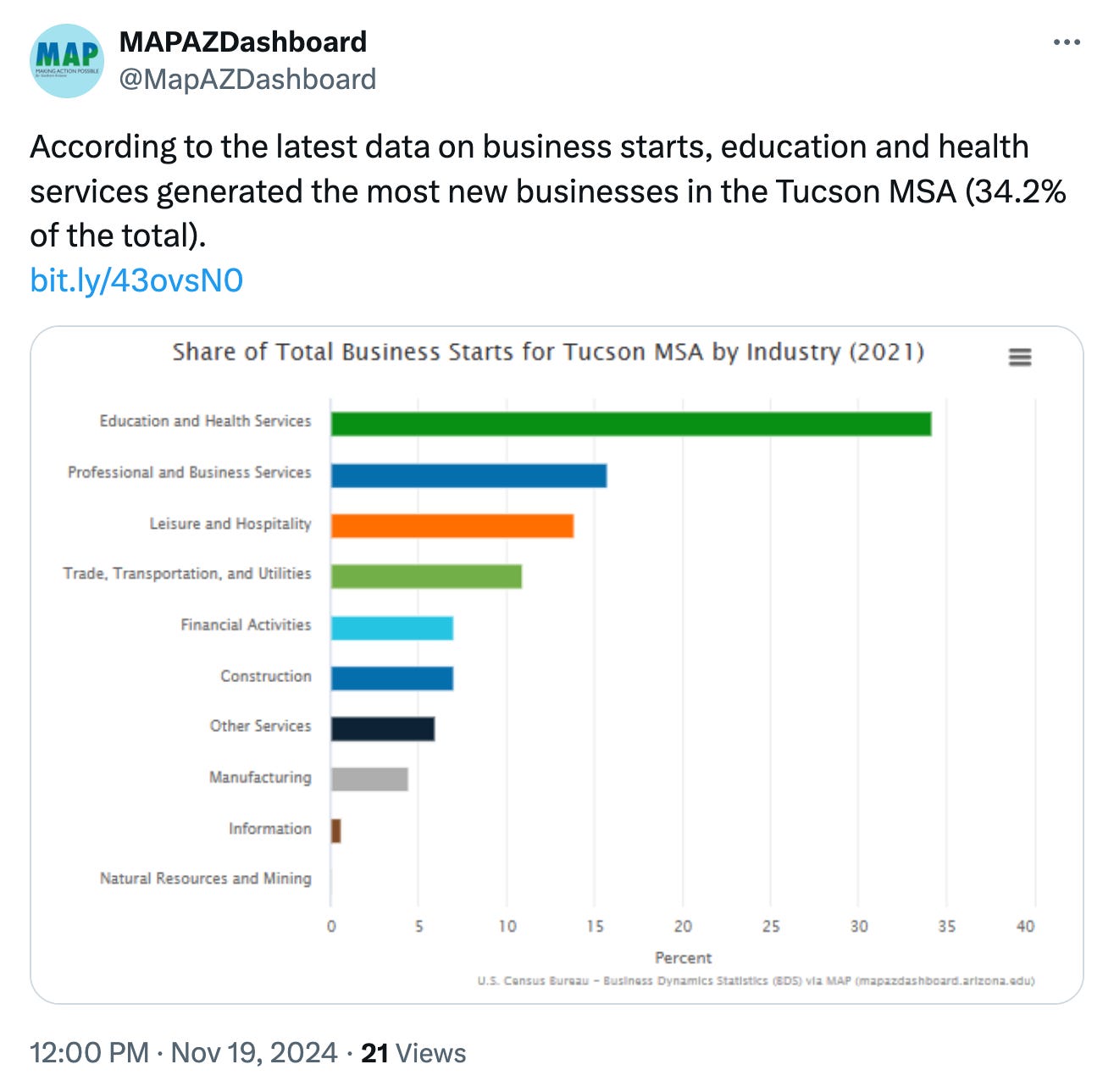It's hard to keep a seat at PCC
New faces are filling up the Pima Community College governing board ... No investigation for county recorder.
There’s one office where you don’t really want the supposed advantage of incumbency.
On the Pima Community College governing board, it appears to be more of a disadvantage, at least in recent years.
And it’s especially notable this year, when most of the other races in Pima County ended with the incumbents keeping their posts.
First there’s the college’s District 3 and Kristen Randall, a former constable who now works as a county air quality manager. Randall beat out incumbent Maria de la Luz Garcia with 56% of the vote to Garcia’s 43%.
In District 5, Arizona Technology Council Vice President Karla Morales took the place of Luis Lopez Gonzales. Morales won with 60% percent to Gonzales’ 40%.
And in the college’s District 1, Nicole Barraza ran unopposed after incumbent Wade McLean did not seek re-election. McLean was appointed to the seat a couple of years ago, after Catherine Ripley stepped down to care for her elderly mother.
Now, with three new members and the two standing members – District 2’s Theresa Riel and District 4’s Greg Taylor – there just two years, the college’s current governing board is in its infancy.
It was just two years ago, in 2022, that Demion Clinco, an incumbent member of the board, raised over $150,000 to try to beat Riel.
What would we do with $150,000? Invest it all in local journalism, of course.
Clinco’s overwhelming financial support from the business community surrounded then-chancellor Lee Lambert and whether he would keep his job. Lambert supporters saw Clinco as key to retaining Lambert.
However, while Clinco brought in a lot of funds, he didn’t bring in the votes.
Riel, who taught math at the college for over 25 years, said she did not want to fire Lambert.
“It wasn’t my goal at all to have him fired or let go of him,” she said. “That was sort of frustrating because I had to keep saying, ‘That’s not my agenda.’ ”
In the end, Lambert, who has been credited with leading the college out of academic probation, was not ousted by the board. Instead, he left in the summer of 2023 to become chancellor of the Foothill De Anza Community College District in California.
The PCC governing board members have a big job. They oversee a roughly $370 million budget and about 18,000 students.Riel is now the board chair, and she’s excited about the three newbies.
“I think the three new members are all strong and powerful women,” she said. “They believe in the college’s mission of helping the students learn and become better versions of themselves.”
So, what were the winning messages and what’s next?
Workforce development is one area where Morales wants to focus, while Randall told us she wants to do more to help students overcome barriers to school, such as restoring affordable child care on the college’s campuses, and getting back state funds the college lost after the Great Recession.
Riel said they are going to return to regular and comprehensive assessments for all jobs, not just faculty.
Additionally, they are going to push for increased enrollment. To this end, general education classes will be offered at each campus so students don’t have to travel to get their full schedule. Riel said they hope to have this in place by the fall of 2025.
Local officials aren’t quite sure what to do with Prop 312, a ballot measure aimed at homelessness that 59% of Arizona voters approved this month.
Local governments will have to reimburse property owners for money they lost due to unenforced nuisance laws, like those that ban panhandling and illegal camping. But the measure leaves a lot of unanswered questions.
At Tuesday’s board meeting, the Pima County supervisors took the first step toward figuring out how to deal with Prop 312.
Supervisor Adelita Grijalva asked staff to look into the “fiscal and operational impacts” of Prop 312, and three other recently approved ballot measures.
Her motion was met with a comment from Supervisor Rex Scott that likely will be repeated by city council members and county supervisors throughout the state.
“I’m not only interested in the potential cost of Proposition 312 — that’s going to vary depending on who makes claims — but I’m not clear procedurally on how it works,” Scott said, throwing his hands up in the air.
Grijalva agreed, saying “I think you’re not alone on that one.”
“That’s why I added ‘operational,’ like, what does that mean?,” Grijalva said. “Because it was not just financial, it was more like ‘what are we going to do with this?’”
Our sister newsletter the Arizona Agenda has the backstory on Prop 312, and its connection to a landmark U.S. Supreme Court case this summer that put local officials in a difficult position.
No takers: The Pima County supervisors aren’t going forward with an outside investigation of a decision by the Pima County Recorder’s Office to close the online portal to request early ballots a few weeks before the election, Arizona Public Media’s Hannah Cree reports. Supervisor Steve Christy requested the investigation, saying it was needed to see whether any close elections were affected by the decision, but none of the four other supervisors supported his request.
Asking for patience: The recount for the Pima County sheriff’s race will take about 14 days, county elections officials said in a news release. About 518,000 ballots were cast and each one included two cards, so more than 1 million cards need to be recounted. They’ll publish the results once the recount is finished.
New rules incoming: County officials in Arizona put together a list of legislative changes they say are needed to avoid a repeat of the alleged $39 million embezzlement in Santa Cruz County, according to a memo from County Administrator Jan Lesher. The Auditor General would get new authority to obtain detailed government account records directly from financial institutions. Newly elected treasurers also would need to meet training requirements.
Heading to D.C.: The former head of the Border Patrol in the Tucson area, John Modlin, was promoted to chief operating officer of U.S. Customs and Border Protection, the agency that oversees the Border Patrol, the Tucson Sentinel’s Paul Ingram reports. Modlin took over the Tucson Sector in late 2020 and dealt with the pandemic, a sharp increase in illegal border crossings, and a new program to help migrants suffering from deadly heat.
34.2%: The percent of new businesses in the Tucson area that were in the fields of education and health services, more than any other type of business.











Thank you for reporting on our community college, PCC. PCC is responsible for a significant proportion of our property taxes and we deserve to be better informed about our community college. I look forward to future follow up articles on this informative article.